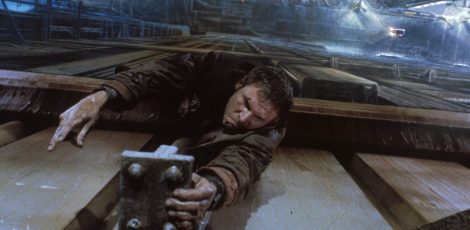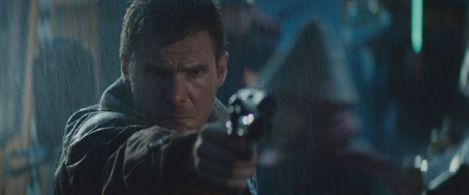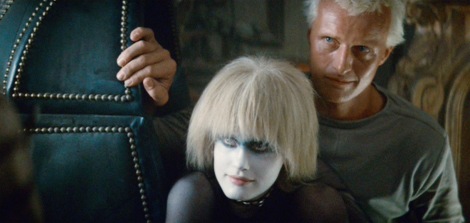Before people go crazy and wonder how I can consider myself a film buff with any sort of credibility without having seen BLADE RUNNER, let me caveat this…
Although I’m counting BLADE RUNNER in my Film Quest 2017 as a film I’ve never seen before, I have actually seen BLADE RUNNER before. However, the first time I watched it, I have no clue which version I watched, and I didn’t remember anything about it aside from the final moments, which I clearly didn’t fully appreciate the first time around. Now that I sat down with The Final Cut and devoted my time and attention to it, fully, I feel like I’ve SEEN IT now. Everything seemed new to me, except for the ending, but I understood the ending this time.

The Version
After asking around for recommendations from those who have seen multiple versions of BLADE RUNNER, I went with The Final Cut. Although I’m sure the narration of the original Theatrical Version would’ve potentially helped me better understand the film, I think I did a good job of keeping up with the story without it. If you can get your hands on this copy, it’s probably the version you should go with, and if you can’t, The Director’s Cut is probably the one you should choose.
The Plot
So what is BLADE RUNNER about, and why should you watch it?
Imagine a future where someone has bioengineered an android which is nearly indistinguishable from a human. Now imagine that those “Replicants” (as they’re called) are much stronger than humans and are being used essentially as slaves to help establish colonies elsewhere because Earth is becoming too crowded, and an expendable workforce is needed. Now imagine that Replicant rebellions start occurring, so two things follow:
1 – the Replicants are banned from Earth, with special police task forces established to hunt down and “retire” any wayward Replicants who come to Earth. The members of these task forces are called Blade Runners.
2 – the newest software/hardware version of Replicants are established with a 4-year lifecycle limit, after which they shutdown permanently. The idea of doing this is to stop Replicants from having their Artificial Intelligence advance to the point of having emotional-type responses likely to result in rebellions / uprisings.
Easy to understand so far, right? Good.

BLADE RUNNER follows Harrison Ford’s character, Deckard, a Blade Runner tasked with tracking down 4 Replicants who have come to Los Angeles.
When it gets broken down like that, it’s rather straightforward (if I do say so myself).
The Verdict
It’s absolutely worth the watch. It’s a classic sci-fi film, and incorporates a lot of film noir elements. It’s got a really great aesthetic, and it’s quite unique, not just for its time, but there aren’t many other films like it. Some parts of the film get a bit confusing and convoluted, but in the end, regardless of whether or not you feel like you understood everything you just watched, it’s a great experience. There are some great performances here, especially from Harrison Ford and Rutger Hauer.

At this point, it seems silly to have to convince someone to watch Blade Runner. If the person likes sci fi films with some mystery to them, maybe a good manhunt, some question about humanity, and wants to see what all the fuss is about? They’ll watch it.
It’s not for everyone, but this time around, I enjoyed it and appreciated it a lot more than I did a decade (or more) ago when I had my initial viewing.
My rating: 92 out of 100
